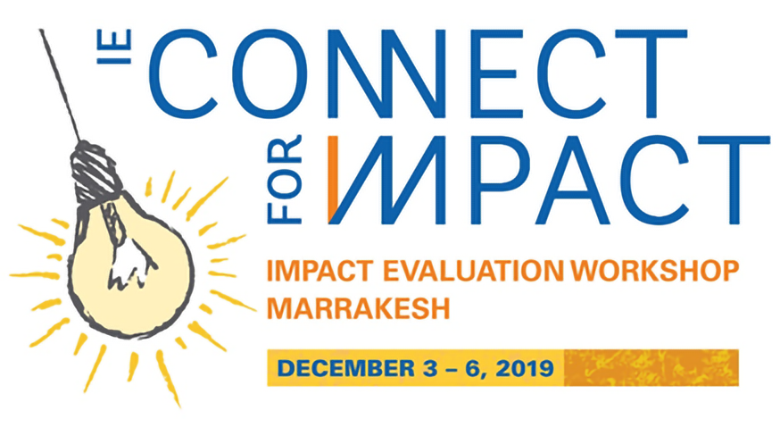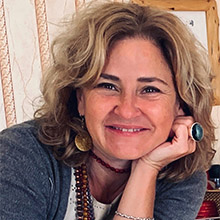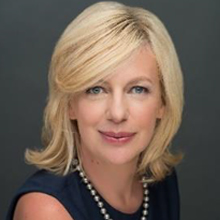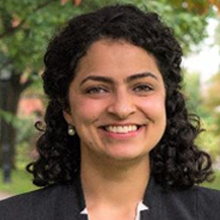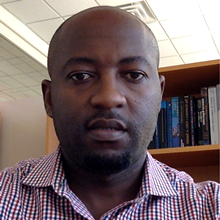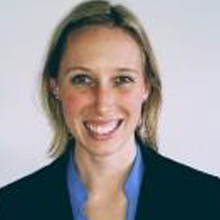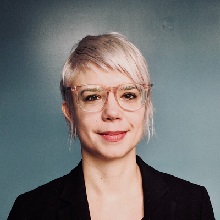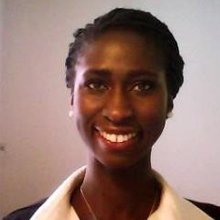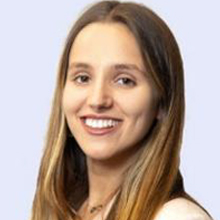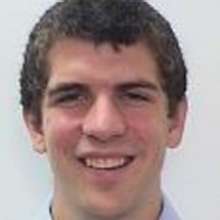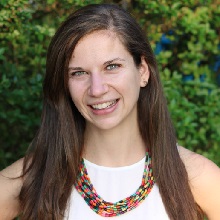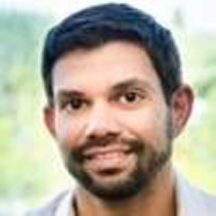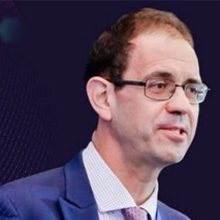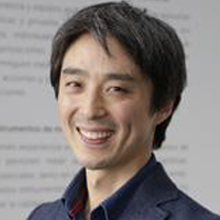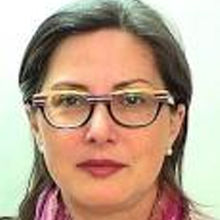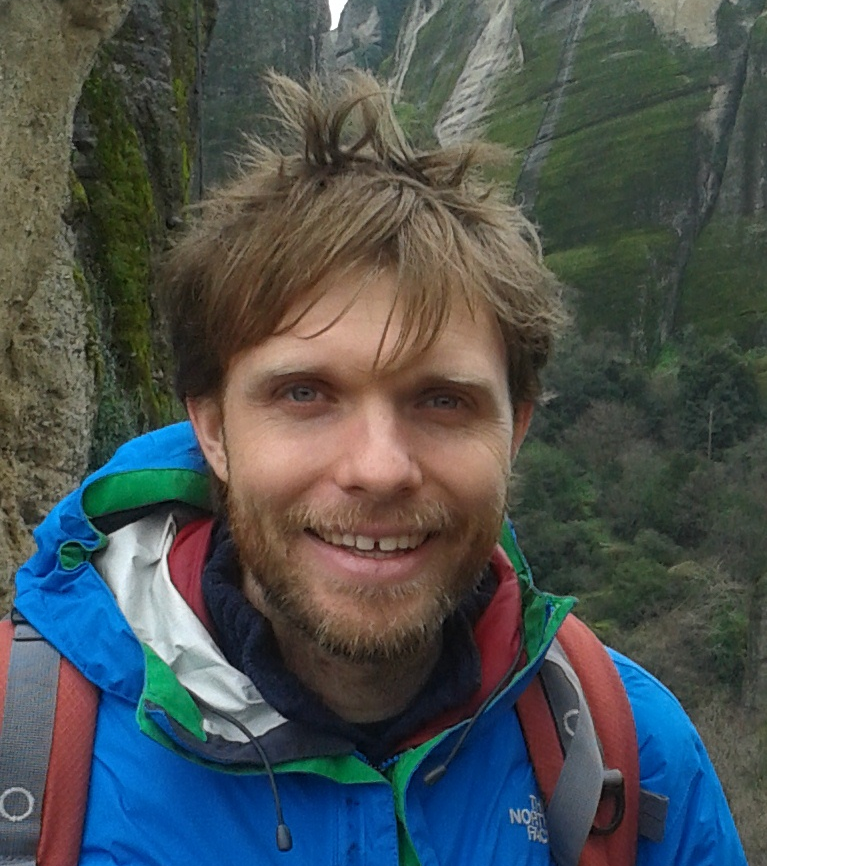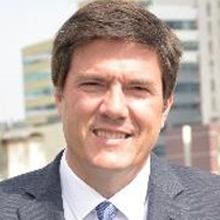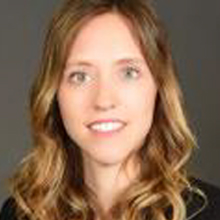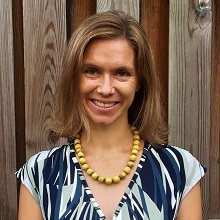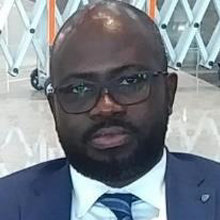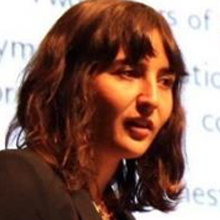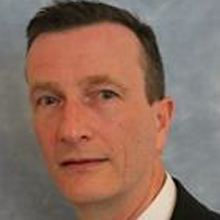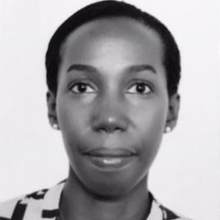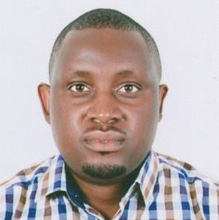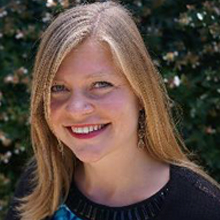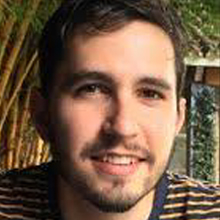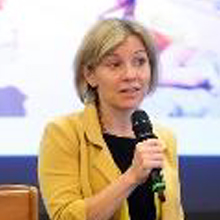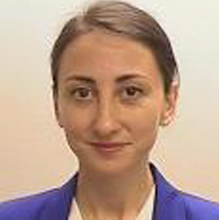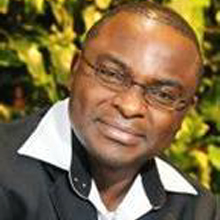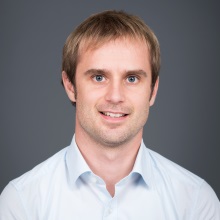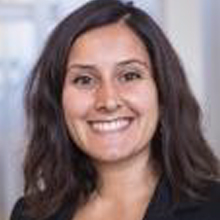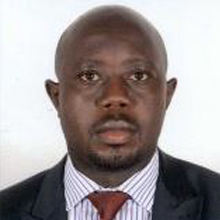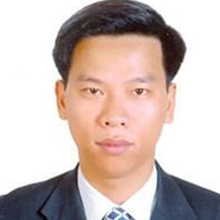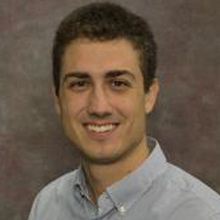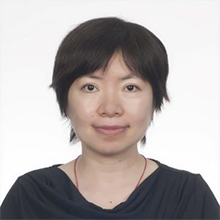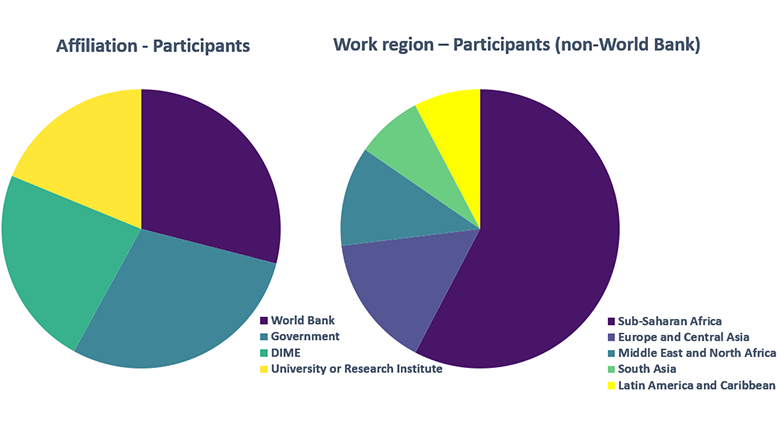Mardi (3 Décembre)
|
| 8:00 – 9:00AM | Enregistrement et Test de Connaissance (Pre)
|
| 9:00 – 9:10AM | Message du directeur du département de transport de la Banque mondiale
Guangzhe Chen, Transport, Banque mondiale (par vidéo) |
| 9:10 – 10:30AM | Cérémonie d’Ouverture : ieConnect pour Impact, Phase III
Nancy Vandycke, Transport, Banque mondiale
Arianna Legovini, DIME, Banque mondiale |
| 10:30 – 10:45AM | Pause-Café |
| 10:45 – 12:00PM | Utilisation de systèmes de données innovantes - Robert Marty, DIME, Banque mondiale
- Théophile Bougna, DIME, Banque mondiale
- Sveta Milusheva, DIME, Banque mondiale
- Alice Duhaut, DIME, Banque mondiale
|
| 12:00 – 1:30PM | Déjeuner |
1:30 – 2:45PM
(Langues des groupes) | Mesurer l’impact I: Inférence Causale et Méthodes Quasi-Expérimentales
Anglais: Arndt Reichert, DIME, Banque mondiale
Français: Alice Duhaut, DIME, Banque mondiale Cette session présentera des méthodes de recherche de causalité et quasi-expérimentales. Les sujets abordés comprennent l’inférence causale, les doubles différences, l'appariement des coefficients de propension et le modèle de discontinuité |
| 2:45 – 3:00 PM | Pause-Café |
| 3:00 – 4:15PM | Opportunités d’Impact 1: Genre
Modérateur: To Nam Toan, Ministère du Transport du Vietnam - Ketki Sheth, University of California Merced
- Arndt Reichert, DIME, Banque mondiale
- Aneesh Mannava, East Asia & Pacific Gender Innovation Lab, Banque mondiale
- Arianna Legovini, DIME, Banque mondiale
|
| 4:15 – 6:00PM | Groupe de Travail : Session 1
Les équipes de projet travaillent sur leur évaluation d’impact, avec le support des chefs d’équipes de projet et des chercheurs.
Dans cette session, le groupe établira une chaîne de résultats et déterminera les questions de recherche pour leur projet. |
| 7:30 – 9:30PM | Diner et Réception |
| | Maître des cérémonies le 3 Décembre: Sveta Milusheva, DIME, Banque mondiale |
Mercredi (4 Décembre) |
| 9:00 – 10:30AM | Opportunités d’Impact 2: Mobilité Urbaine
Modérateur: Umaru Katta, Ministère du Transport et de l’Aviation, Sierra Leone- Andrés Gómez-Lobo, Universidad de Chile
- William Violette, Federal Trade Commission
- Sveta Milusheva, DIME, Banque mondiale
- Javier Morales Sarriera, Transport, Banque mondiale
- Kenzo Asahi, Pontificia Universidad Católica de Chile
|
| 10:30 – 10:45AM | Pause-Café |
10:45 – 12:15PM
(Langue des groupes) | Mesurer l’impact II: Méthodes Expérimentales et Etude d’un Cas Pratique
Anglais: Maria Jones, DIME, Banque mondiale
Français: Théophile Bougna, DIME, Banque mondiale
Cette session présentera les méthodes expérimentales. Les sujets abordés comprennent l’évaluation d’impact, l’inférence causale et la méthode du tirage au sort. |
| 12:15 – 1:45PM | Photo de groupe et déjeuner
|
| 1:45 – 3:00 PM | Opportunités d’Impact 3: Routes rurales
Modérateur: Cecilia Briceño-Garmendia, Transport, Banque mondiale - Kevin McPherson, Transport Research Laboratory
- Elizaveta Perova, East Asia & Pacific Gender Innovation Lab, Banque mondiale
- Heitor Pellegrina, New York University Abu Dhabi
- Serge Adjognon, DIME, Banque mondiale
- Nino Pkhikidze, Transport, Banque mondiale
|
| 3:00 – 3:15PM | Pause-Café
|
| 3:15 – 4:15PM | Opportunités d’Impact 4: Energie et Transport
Modérateur: Fan Zhang, Infrastructure, Banque mondiale - Aidan Coville, DIME, Banque mondiale
- Bridget Hoffman, Banque interaméricaine de développement
- Arndt Reichert, DIME, Banque mondiale
- Serge Adjognon, DIME, Banque mondiale
|
4:15 – 6:30PM
(Petits groupes) | Groupe de Travail: Session 2
Dans cette session, les groupe détermineront la stratégie d’identification, les indicateurs de résultats et les base de données qui seront utilisées pour répondre à chaque question de recherche.
|
| | Maître des cérémonies le 4 Décembre: Théophile Bougna, DIME, World Bank
|
Jeudi (5 Décembre)
|
| 9:00 – 9:30AM | Améliorer le suivi et évaluation dans les projets de transport
Arturo Ardila-Gómez, Transport, Banque mondiale
|
| 9:30 – 10:15PM | Petite Discussion avec les économistes du secteur du transport
Modérateur: Nancy Vandycke, Transport, Banque mondiale
Discussions avec des cas et des idées sur les évaluations d’impact dans le transport. - Fan Zhang, Infrastructure, Banque mondiale
- Javier Morales Sarriera, Transport, Banque mondiale
- Kristin Panier, Transport, Banque mondiale
- Mathilde Lebrand, Infrastructure, Banque mondiale
|
| 10:15 – 10:45AM | Ce qui a été fait jusqu’à présent
Nancy Vandycke, Transport, Banque mondiale
Arianna Legovini, DIME, Banque mondiale |
| 10:45 – 11:00AM | Pause-Café |
11:00 – 12:15PM
(Langues des groupes) | Mesurer l’impact III: Échantillonnage et Calculs de Puissance
Anglais: Aidan Coville, DIME, Banque mondiale
Français: Serge Adjognon, DIME, Banque mondiale
Introduction des concepts d’échantillonnage, de randomisation et de calcul de puissance
|
| 12:15 – 1:45PM | Déjeuner |
| 1:45 – 2:45PM | Details d’une collaboration : Rwanda - Projet de pistes rurales
Modérateur: Arturo Ardila-Gómez, Transport, Banque mondiale
Les représentants du gouvernement, des équipes opérationnelles et les chercheurs du projet de pistes rurales du Rwanda discuteront les recherches en cours d’implémentation et leur expérience. - Maria Jones, DIME, Banque mondiale
- Emmanuel Taban, Transport, Banque mondiale
- Jean Pierre Nzekabo, Rwanda Transport Development Agency
- Solange Mizero, Rwanda Transport Development Agency
|
2:45 – 4:15PM
(Petits groupes) | Groupe de travail: Session 3 Dans cette session, les groupes travailleront sur le plan de mise en oeuvre pratique de l’évaluation d’impact, y compris le budget, le calendrier et la dotation en personnel. |
| 4:15 – 4:30PM | Pause-Café |
4:30 – 6:30PM
(Petits groupes) | Groupe de travail: Session 4 Dans cette session, les groupes travailleront sur leurs présentations du lendemain. |
| | Maître des cérémonies le 5 Décembre: Alice Duhaut, DIME, Banque mondiale. |
Vendredi (6 Décembre)
|
| 8:00 – 9:00 AM | Les équipes finalisent leurs présentations
|
| 9:00 – 9:15AM | Test de Connaissance (Post)
|
| 9:15 – 9:45AM | ieConnect Prochaines étapes
Sveta Milusheva, DIME, Banque mondiale
|
| 9:45 – 10:45AM | Méthodologie d’Evaluation d’Impact : Présentations des Equipes Session I
Les équipes présentent leur méthodologie d’évaluation (5 minutes par
équipe et 10 minutes de discussion)
Les questions et commentaires seront adressés à la fin
L’ordre des présentations sera indiqué avant le panel
|
| 10:45 – 11:00 AM | Pause-Café
|
| 11:00 – 12:30 PM | Méthodologie d’Evaluation d’Impact : Présentations des Equipes Session II
Les équipes présentent leur méthodologie d’évaluation (5 minutes par équipe, 10 minutes de discussion)
Les questions et commentaires seront adressés à la fin L’ordre des présentations sera indiqué avant le panel |
| 12:30 – 1:00PM | Cérémonie de Clôture
Nancy Vandycke, Transport, Banque mondiale
Arianna Legovini, DIME, Banque mondiale
|
| | Maitre de cérémonies le 6 Décembre: Javier Morales Sarriera, Transport, Banque mondiale |
